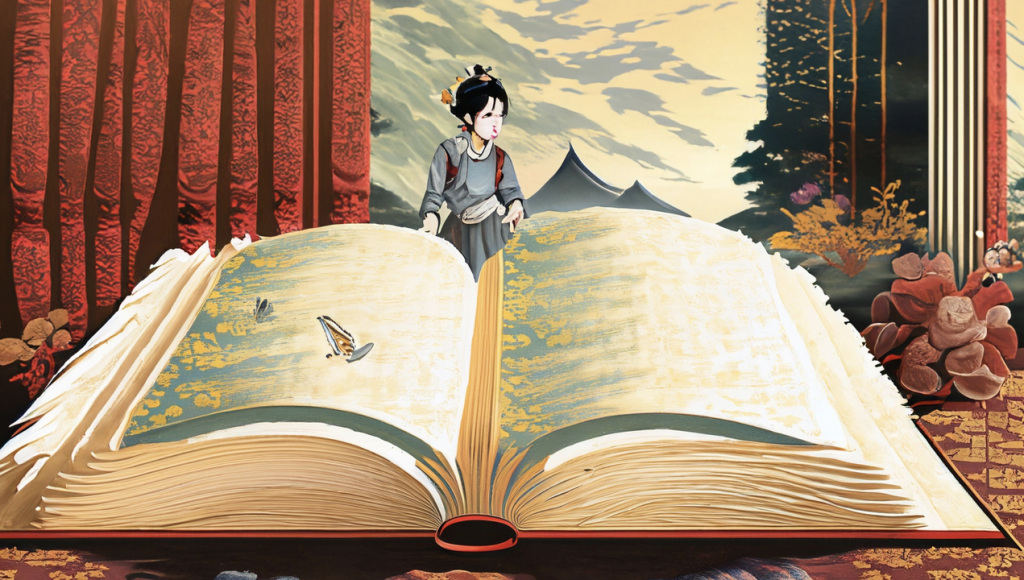Table of Contents
Classic literature holds a unique and revered place in the realm of written works. Defined by its enduring quality, profound themes, and universal appeal, classic literature continues to captivate readers across generations. This article explores what makes a work of literature &8220;classic,&8221; examines some notable examples, and discusses the lasting impact of classic literature on both individuals and society.

1. Defining Classic Literature
Classic literature is characterized by several key attributes that contribute to its lasting significance:
- Timeless Themes: Classics often explore themes that resonate across cultures and eras, such as love, power, morality, and human nature. These universal themes allow readers to connect with the text on a deep level, regardless of the historical or cultural context.
- Exceptional Craftsmanship: The artistry of classic literature is evident in its language, structure, and style. Classic works are often celebrated for their literary excellence, including masterful use of symbolism, character development, and narrative technique.
- Cultural Impact: Classics frequently influence subsequent works of literature, art, and culture. They often reflect or challenge prevailing societal norms, providing valuable insights into the values and concerns of their time.
- Enduring Relevance: A hallmark of classic literature is its ability to remain relevant and thought-provoking over time. These works continue to be studied, analyzed, and appreciated by readers and scholars, reflecting their lasting significance.
2. Notable Examples of Classic Literature
Several works have achieved the status of classics due to their remarkable contributions to literature and culture:
- Pride and Prejudice by Jane Austen: Published in 1813, Austen’s novel remains a beloved classic for its wit, social commentary, and exploration of themes related to class, marriage, and individual agency. The story of Elizabeth Bennet and Mr. Darcy has resonated with readers for over two centuries, illustrating the novel&8217;s enduring appeal.
- Moby-Dick by Herman Melville: First published in 1851, Melville’s ambitious and complex novel is celebrated for its exploration of obsession, identity, and the human condition. The tale of Captain Ahab’s relentless pursuit of the white whale, Moby Dick, reflects the intricacies of both the individual psyche and the broader human experience.
- To Kill a Mockingbird by Harper Lee: Published in 1960, Lee’s novel addresses issues of racial injustice, moral growth, and empathy through the eyes of Scout Finch. The novel&8217;s powerful portrayal of social issues and its memorable characters have cemented its place as a modern classic.
- 1984 by George Orwell: Orwell’s dystopian novel, published in 1949, offers a chilling vision of a totalitarian regime and explores themes of surveillance, control, and individual freedom. Its prescient insights into political oppression and societal manipulation have ensured its continued relevance.
- The Odyssey by Homer: This ancient epic poem, dating back to around the 8th century BCE, recounts the adventures of Odysseus as he seeks to return home after the Trojan War. &8220;The Odyssey&8221; is a cornerstone of Western literature and mythology, offering timeless themes of heroism, loyalty, and perseverance.
3. The Lasting Impact of Classic Literature
Classic literature continues to exert a profound influence on various aspects of culture and education:
- Cultural Reflection and Critique: Classic works often serve as reflections of their time, providing insights into historical contexts and societal norms. They also offer critiques of prevailing ideologies, encouraging readers to engage with and question established beliefs.
- Educational Value: Many educational curricula include classic literature to introduce students to fundamental literary concepts, historical perspectives, and ethical dilemmas. Studying these works helps students develop critical thinking, analytical skills, and an appreciation for literary artistry.
- Inspirational Influence: The themes and narratives of classic literature often inspire contemporary writers, artists, and creators. Classic works provide a foundation upon which new stories and interpretations can be built, demonstrating the continued relevance of their themes and ideas.
- Personal Enrichment: Reading classic literature offers personal enrichment by exposing readers to diverse perspectives, emotional experiences, and philosophical inquiries. Engaging with these texts can foster empathy, intellectual curiosity, and a deeper understanding of the human condition.

4. Challenges and Criticisms
Despite their esteemed status, classic works of literature are not without their challenges and criticisms:
- Cultural Bias: Many classic works reflect the cultural biases and prejudices of their time. Contemporary readers may encounter views and attitudes that are outdated or problematic, requiring a critical approach to understanding these texts in their historical context.
- Accessibility: The language and style of some classic literature can be challenging for modern readers. Language changes, archaic expressions, and complex narrative structures may pose difficulties, potentially limiting accessibility.
- Canonical Narrowness: The traditional canon of classic literature has often been criticized for its lack of diversity. Efforts are ongoing to include a broader range of voices and perspectives in the study of classic literature, reflecting a more inclusive approach to literary history.
5. The Future of Classic Literature
As society and culture continue to evolve, the study and appreciation of classic literature will likely adapt to new perspectives and contexts:
- Reinterpretation and Adaptation: Classic works are frequently reinterpreted and adapted into various forms, including films, theater, and modern retellings. These adaptations offer fresh perspectives and make classic literature accessible to new audiences.
- Diverse Canon: The ongoing expansion of the literary canon to include diverse voices and perspectives enriches the study of classic literature. This inclusivity reflects a broader understanding of literary value and historical significance.
- Digital Accessibility: Advances in technology and digital media enhance the accessibility of classic literature. Online resources, e-books, and educational platforms make it easier for readers to access and engage with classic texts.

Conclusion
Classic literature represents a treasure trove of human experience, artistic achievement, and intellectual inquiry. Through its timeless themes, exceptional craftsmanship, and enduring relevance, classic literature continues to captivate and inspire readers across generations. By exploring these works, we gain valuable insights into the human condition and the diverse tapestry of cultural and historical contexts that shape our world. As we navigate the future, the study and appreciation of classic literature will remain a vital part of our literary and cultural heritage.
